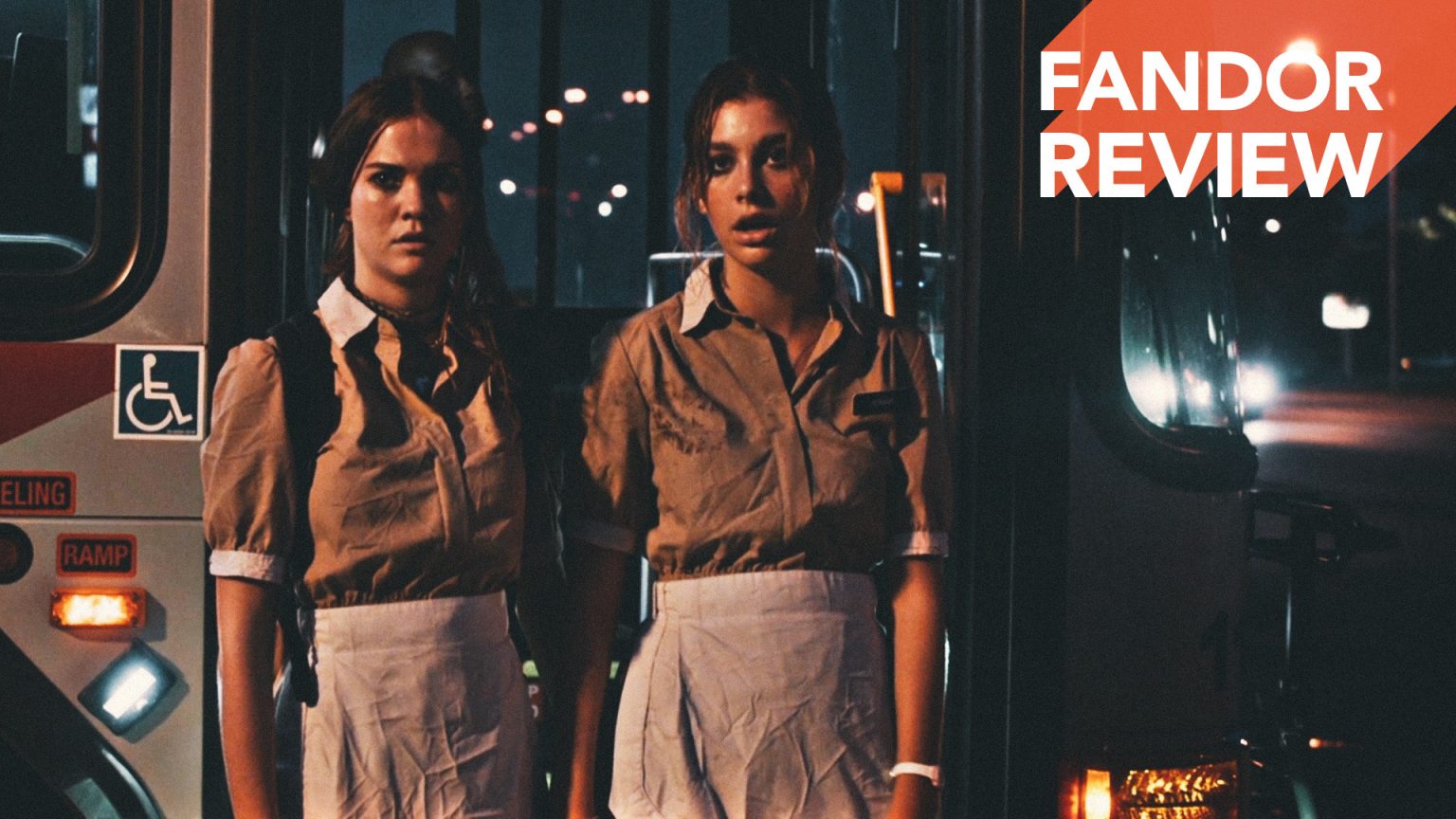If your dream were to swim with dolphins, smoke weed, and eat donuts on a beach, how far would you go to make it come true? Whether or not you’ll completely enjoy Augustine Frizzell’s Never Goin’ Back depends, in part, on your answer to that question. With her debut feature, Frizzell (who is also an actress and married to filmmaker David Lowery), along with the marketing support of distributor A24, has crafted a stylized, raunchy, stoner-buddy comedy with a distinctly 2018 flavor.
The dolphin dreams in question belong to the film’s two teen protagonists, Jessie (Camila Morrone) and Angela (Maia Mitchell). Jessie and Angela live in a small town in Texas, sharing a poorly maintained apartment with Jessie’s wannabe-gangster but actually-sort-of-sensitive brother, Dustin (Joel Allen), and his pervy friend Brandon (Kyle Mooney).
To celebrate Jessie’s seventeenth birthday, Angela promises Jessie a trip to the beach in Galveston. All they have to do is save up a little money by the end of the week, working extra shifts at the local diner where they wait tables, but sure enough, things don’t go as planned: A series of unfortunate events befall them and they’re out the money needed for the trip. They embark on a drug-and-sweat-drenched odyssey to right the ship, and we’re along for the ride.
Half-baked schemes to replace the money abound, along with some terrible constipation and the accidental ingestion of a lot of marijuana. The screenwriting sometimes sags under the weight of forced jokes and plot devices and unnecessary character development. However, Frizelle’s strength as a stylistic director frequently redeems those moments. Unique touches, like a slow-motion shot of Jessie and Angela entering a supermarket to find a cool reprieve from the sweltering Texas heat, accentuate most scenes. Frizelle also infuses the film with a killer soundtrack, most notably the song “Lights” by Zhora, which acts as the girls’ makeshift theme. Striving to create a mood, the whole movie navigates that tricky balance between style and substance.
Jessie and Angela inhabit a world that should deeply resonate with a certain slice of young America. For them, it has the feeling of a cultural touchstone, akin to, say, Superbad. There will also be plenty of people who just can’t empathize with the protagonists or their goals. Jessie and Angela’s journey is fraught with ill-advised decisions, and their actions are far from noble. Still, there is an odd sense of nobility in their pursuit. What the film lacks in lasting influence, it makes up for in an unexpected, if filthy, charm and sparks of real potential for Augustine Frizzell and, especially, the two young leads.
Morrone and Mitchell paint a convincing portrait of a beautiful friendship between two unique American women with a real and true voice underlying an exterior of vulgar teenage rebellion. Sure, they do drugs and watch porn together, but they also live by their own rules. They support themselves and each other, however haphazardly, and answer only to their own instincts. They are both conventionally attractive, yet they never seem defined by their sexuality. They have conversations about things other than men, and their male counterparts, though earnest, are mostly inept nuisances. Whether or not you’re the kind of person who wants to get stoned on a beach with dolphins and donuts, you can’t deny that the film has a passionate voice, You just may not agree with it— or it with you! Either way, it probably wouldn’t matter to Jessie and Angela.




